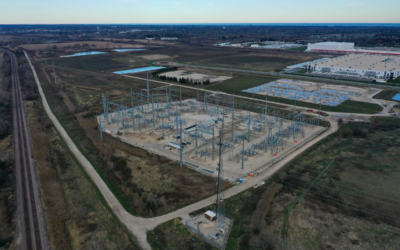
Nearly half of Americans believe they would have difficulty paying an unexpected $500 bill without borrowing, according to the Century Foundation. (Adobe Stock)
It is Hunger Action Month and people in Wisconsin are skipping meals to make ends meet, according to a recent study from the think tank the Century Foundation, which showed growing economic concerns are sweeping the nation.
Angela Hanks, chief of policy programs for the foundation, said respondents are concerned changes to government policies might exacerbate their financial challenges. She reported more than 80% of those surveyed worry about grocery costs and about 50% are stressed about rent and mortgage payments.
Two-thirds would be unable to cover an unexpected medical expense.
“We also asked what people are doing in this environment to make ends meet,” Hanks explained. “One of the more startling findings was that one in four had skipped meals in the last year to save money.”
Roughly one in 10 Wisconsinites experience food insecurity. The survey found more than 35% of respondents were tapping into savings and using credit cards to pay bills, and about 30% were taking on debt to cover basic needs.
Hanks emphasized the economic unease transcends party lines, particularly impacting Black and Latino households, and low- and middle-income families. She noted the survey highlighted particular concern about the effects of President Donald Trump’s policies, with nearly 80% of respondents worried about tariffs raising prices and 75% fearing a possible recession.
Hanks emphasized people feel economic changes in their everyday lives before they appear in official economic indicators but recent measures seem to reinforce the unease.
“In the last couple of weeks, we’ve seen some concerning signs for the economy,” Hanks observed. “We have slower GDP growth, inflation that’s not tremendously high, but is trending now in the wrong direction. And we got news two weeks ago that the labor market is not as solid as we thought it once was.”
Hanks contended the polices of the past seven months are not set in stone and argued policymakers should seriously reconsider approaches to health care, food assistance, and tariffs. She emphasized needed investments in families, a rollback of enacted cuts and increased efforts to ensure Americans can have stable lives without facing such severe economic insecurity.
“I hope that looking at this data, whether it’s the Trump administration or other policymakers on both sides of the island Congress, that they’re really thinking hard about the fact that Americans cannot take another hit,” Hanks underscored.
Related: WATCH: Tariffs are hitting Wisconsin farmers where it hurts

WI energy bills rise as Trump marks one year in office
By Judith Ruiz-Branch On the one-year anniversary of President Donald Trump’s second term, advocates for clean energy and the environment are...

6 immigrant-owned Wisconsin businesses to support in 2026
Immigrant-owned businesses support the local economy and provide an opportunity to learn about new cultures. Here are six in Wisconsin to check out...

Wisconsinites press Congress over unaffordable health insurance
By Judith Ruiz-Branch Some Wisconsinites are looking to Congress to finish what it started this week in passing a bipartisan measure which...

Parents deported, children left behind: WI advocates warn of growing crisis
By Judith Ruiz-Branch New research is shedding light on the issue of parent-child separation among immigrant families, which has become more...




